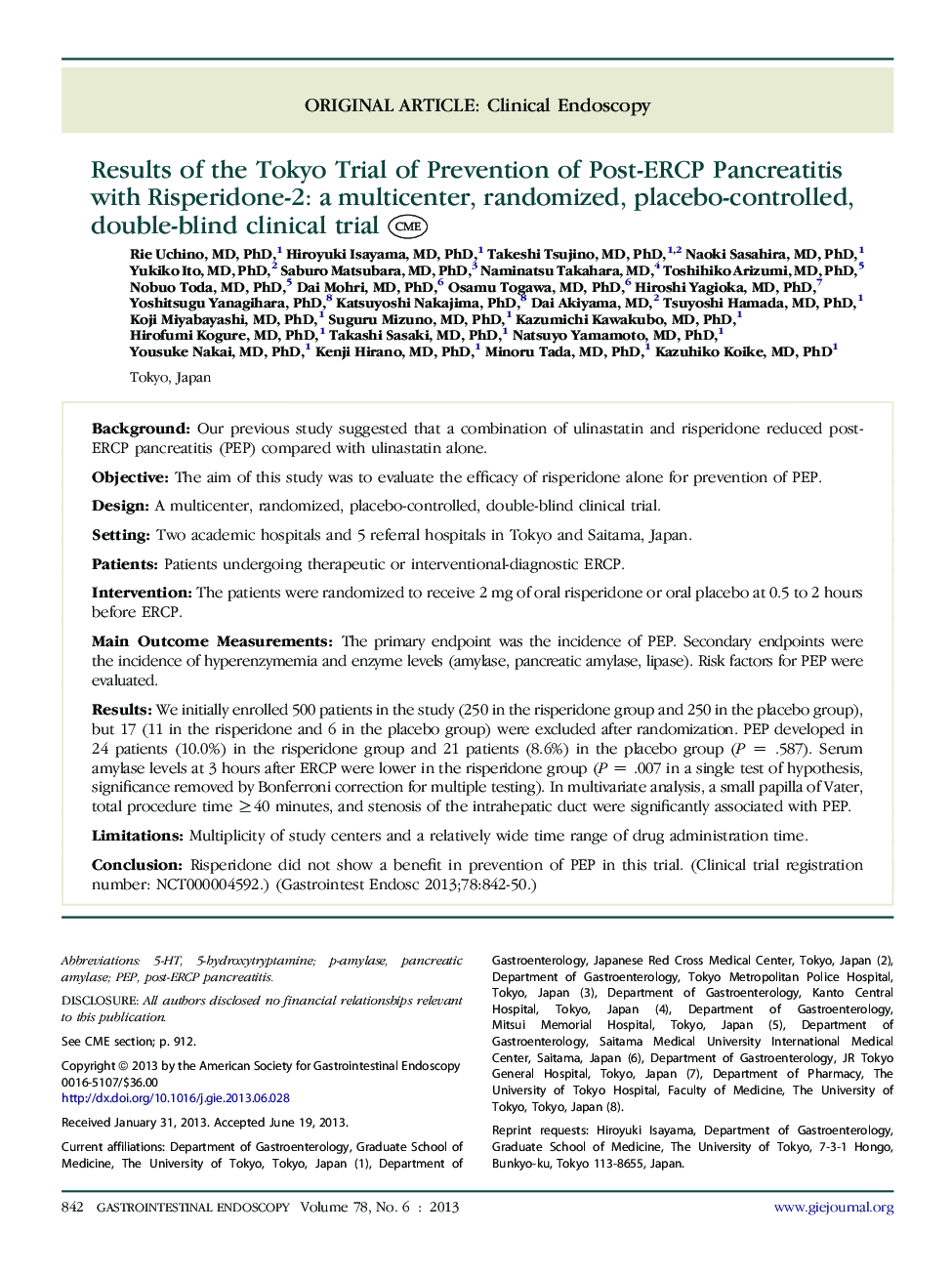| Article ID | Journal | Published Year | Pages | File Type |
|---|---|---|---|---|
| 3303633 | Gastrointestinal Endoscopy | 2013 | 9 Pages |
BackgroundOur previous study suggested that a combination of ulinastatin and risperidone reduced post-ERCP pancreatitis (PEP) compared with ulinastatin alone.ObjectiveThe aim of this study was to evaluate the efficacy of risperidone alone for prevention of PEP.DesignA multicenter, randomized, placebo-controlled, double-blind clinical trial.SettingTwo academic hospitals and 5 referral hospitals in Tokyo and Saitama, Japan.PatientsPatients undergoing therapeutic or interventional-diagnostic ERCP.InterventionThe patients were randomized to receive 2 mg of oral risperidone or oral placebo at 0.5 to 2 hours before ERCP.Main Outcome MeasurementsThe primary endpoint was the incidence of PEP. Secondary endpoints were the incidence of hyperenzymemia and enzyme levels (amylase, pancreatic amylase, lipase). Risk factors for PEP were evaluated.ResultsWe initially enrolled 500 patients in the study (250 in the risperidone group and 250 in the placebo group), but 17 (11 in the risperidone and 6 in the placebo group) were excluded after randomization. PEP developed in 24 patients (10.0%) in the risperidone group and 21 patients (8.6%) in the placebo group (P = .587). Serum amylase levels at 3 hours after ERCP were lower in the risperidone group (P = .007 in a single test of hypothesis, significance removed by Bonferroni correction for multiple testing). In multivariate analysis, a small papilla of Vater, total procedure time ≥40 minutes, and stenosis of the intrahepatic duct were significantly associated with PEP.LimitationsMultiplicity of study centers and a relatively wide time range of drug administration time.ConclusionRisperidone did not show a benefit in prevention of PEP in this trial. (Clinical trial registration number: NCT000004592.)
